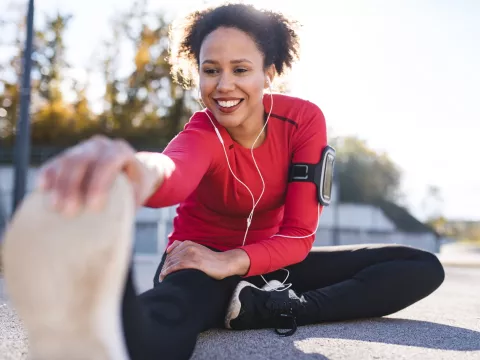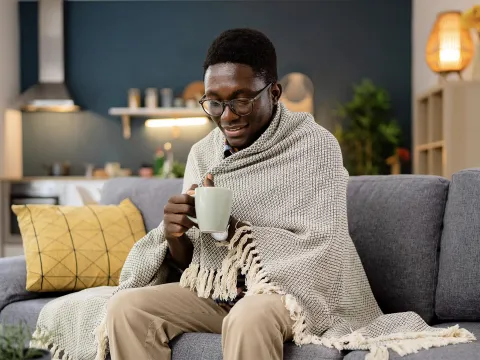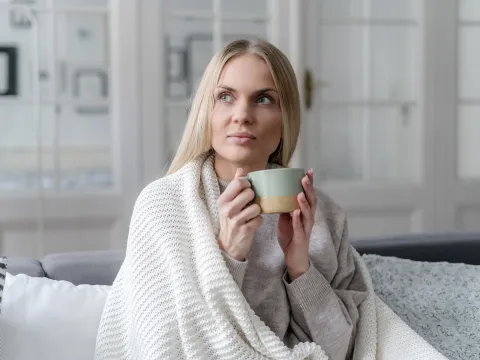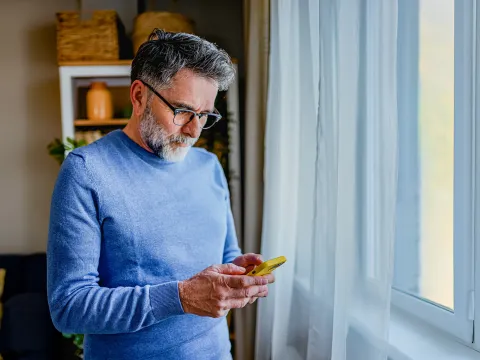- AdventHealth Centra Care

Looking to improve your overall quality of life? Taking time to relax isn’t just about gaining peace of mind. It also helps reduce stress that’s cluttering your day-to-day. Stress has been linked to many health complications, from heart problems to dementia, so use these soothing relaxation tools to boost your overall well-being right now.
Here are 10 ways relaxation can benefit your health:
1. Improves Concentration
If stress begins to overpower your ability to focus, it may be difficult to accomplish even simple tasks. Relaxation techniques can help give you something else to focus on, allowing your mind a chance to clear.
2. Improves Digestion
According to our digestive experts, relaxation appears to help those with GI disorders by lessening pain and helping to manage irritability.
3. Increases Blood Flow
Relaxation can help your arteries to widen slightly, allowing blood flow to increase. That also increases the amount of oxygen reaching your body tissues.
4. Lessens Anger and Frustration
Do your muscles sometimes tense up when you become angry or frustrated? Muscle tension is a sign of stress, and relaxation techniques can help you loosen those muscles and feel calmer.
5. Lowers Blood Pressure
As your body reaches a state of relaxation, your breathing becomes slower and causes your body to slow down other functions. As your heart rate slows, your overall blood pressure lowers.
6. Lowers Risk of Stroke
According to a recent study, people who coped best with stressful events had a 24% lower risk of stroke. Relaxation techniques can be a beneficial coping mechanism.
7. Promotes Emotional Well-Being
Studies have linked chronic stress to killing brain cells. When the stress hormone — called cortisol — is elevated, there can also be a reduced amount of serotonin and dopamine present, and that has been linked to depression.
8. Reduces Fatigue
Relaxation techniques, especially when combined with consistent sleep schedules, limiting caffeine and alcohol, etc., can all contribute to getting a better night’s rest. By clearing your mind of stressors before trying to sleep, you may experience less restlessness.
9. Reduces Inflammation
Stress can impact your body’s ability to fight off common illnesses, such as colds. Inflammation can build quicker when your stressed, which could alter your body’s immune response. With a weaker immune system and higher level of inflammation, you’re more likely to feel under the weather.
10. Slows Heart Rate
Stress can increase your risk of high blood pressure, heart attacks and other heart issues. When your body relaxes, you’re protecting your heart by slowing your heart rate.
Relaxation Techniques
There are so many health benefits linked to relaxation, so it’s crucial to know how to relax and find a method that works for you. Every body is different, and while you may have tried meditation or other common stress-reducing techniques that haven’t worked for you, don’t stop there.
Relaxation techniques include a number of practices, including progressive relaxation, guided imagery, biofeedback, self-hypnosis and deep breathing exercises. The goal for each of these techniques is to produce the body’s natural relaxation response, which slows breathing and lowers blood pressure. Learn more with these five techniques below.
1. Biofeedback-assisted relaxation
This technique uses electronic technology to measure your body’s functions and gives you information about them so you can learn how to better control them.
2. Deep breathing
Taking slow, deep, even breaths can help steady your mind and calm your body.
3. Guided imagery
By focusing on pleasant images to replace negative or stressful things, either on your own or led by a practitioner, your body will feel more relaxed.
4. Progressive relaxation
With this technique, you tighten and relax various muscle groups. This practice is sometimes used in combination with guided imagery and deep breathing.
5. Self-hypnosis
Those practicing self-hypnosis are taught to produce the relaxation response when prompted to do by a phrase or cue.





